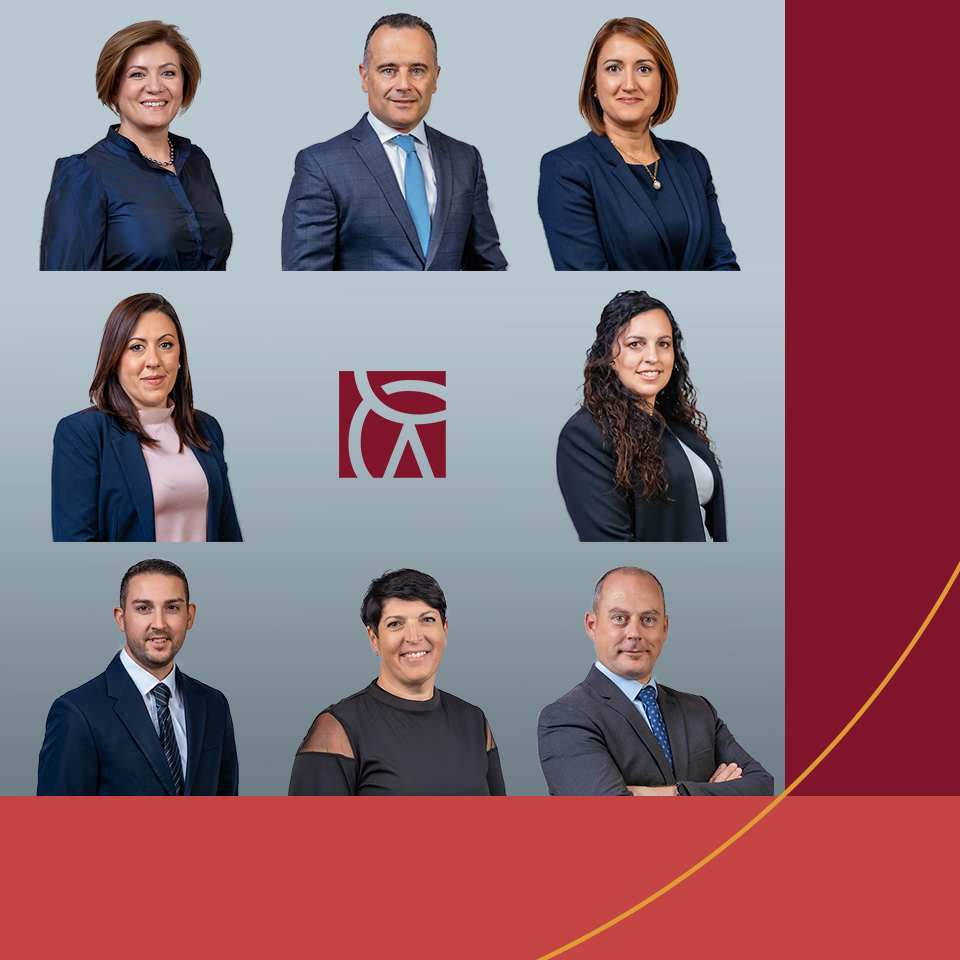Fintech merges financial services and IT. Malta has recently enacted legislation which shall provide a legal framework for cryptocurrencies, Initial Coin Offerings, cryptocurrency exchanges and service providers.
Fintech fuses together the traditional concepts in Financial Services with innovative, bespoke technologies that are set to revamp the industry from the inside out. Fintech gained significant popularity in recent years when cryptocurrencies and blockchain technology (also referred to as distributed ledger technology (“DLT”)) took centre stage as the next big thing to shake up business as we know it after the Internet. Malta was one of the few countries which have sought to regulate this space which remains widely unregulated. In fact, it was the first countries which drafted a fully comprehensive legal framework for Initial Coin Offerings (ICOs), the treatment of cryptocurrencies and the recognition of service providers. Three acts aimed at regulating the industry have been recently enacted to provide legal guidance to businesses seeking to set up shop in a blockchain-friendly jurisdiction which does not stifle innovation, and which allows companies to be compliant. This has led Malta to be dubbed as the ‘Blockchain Island’. Indeed, this progressive and open-minded approach to regulating the blockchain and crypto ecosystem has led some of the biggest names in the industry, including cryptocurrency exchanges Binance and OKEx to expand their operations to Malta.

Legal Framework
The Malta Digital Innovation Authority
In order to ensure the sustainable growth of this industry, the Malta Digital Innovation Authority (the ‘MDIA’) was established by the MDIA Act. Led by Mr Stephen McCarthy as CEO, the Authority shall be responsible for ensuring that the highest industry standards are respected and business in Malta shall be conducted as honestly and transparently as possible. The MDIA will also be responsible for the certification of technology arrangements and the registration of Technology Service Providers.
Innovative Technology Arrangements & Services Act (the ‘ITAS’ Act)
The ITAS Act sets out the regime applicable for the registration of Technology Service Providers and the certification of Technology Arrangements. Software and architectures used in designing and delivering DLT, smart contracts and related applications and other types of innovative technology arrangements and their developers fall under this Act.
The Virtual Financial Assets Act (the ‘VFAA’)
The VFAA provides a legal framework for the issuing of ICOs and the treatment of cryptocurrencies. The lack of certainty in the legal status of tokens and cryptocurrencies has caused significant difficulties, particularly in cases where tokens have the characteristics of financial instruments but circumvent MiFID under the guise of their nature as digital assets. Malta has sought to clarify this ambiguity by creating the Financial Instruments Test (the ‘test’) which classifies all DLT assets into three categories: virtual tokens, financial instruments or virtual financial assets.
The Financial Instruments Test
Firstly, the Test will determine whether the DLT asset can be considered as a virtual token and would fall outside the scope of both the VFAA and the Investment Services Act/ MiFID. A virtual token is a token which does not have any value outside of its platform and thus cannot be traded or exchanged outside of its platform. A ‘utility token’ would generally be considered as a virtual token.
Secondly, the Test will enquire whether the DLT asset qualifies as a financial instrument under MiFID and the local Investment Services Act. A ‘security token’ would generally be captured under the aforementioned legislation.
Thirdly, if a DLT asset cannot be classified as a virtual token or as a financial instrument, it will be captured by the new Virtual Financial Assets Act once it becomes law and will be considered a Virtual Financial Asset.
Companies seeking to set up an ICO in or from within Malta, companies which issued DLT assets overseas but wish to carry out a related activity in or from Malta; and all other entities which shall be dealing with DLT-assets shall need to take the Test to determine how their DLT asset should be classified.
Get More Info
Services offered by our Fintech Practice
Setting up ICO in Malta
Prior to setting up an ICO in Malta, it is imperative to determine what kind of DLT asset shall be offered to investors in order to determine the appropriate law which shall govern the issuing process. If the test determines that the DLT asset can be classified as a virtual financial asset, a whitepaper will need to be drawn up in accordance with the First Schedule of the VFAA which sets out a detailed list of required information.
Additionally, physical presence is required in Malta. The issuer will also need to appoint a VFA Agent who shall be responsible for ensuring that the issuer has complied with the rules of the VFAA and any subsidiary legislation under the act, and who will also liaise with the MFSA on the issuer’s behalf.
Our Fintech advisors have been following the progress in the industry and contributing by penning contribution documents as requested by the Government during the drafting process of the legislation, as well as contributing several researched articles on the topic. We are already assisting clients seeking to set up an ICO in Malta by guiding them through the Financial Instruments Test. Our advisors may also act as VFA agents and can assist the client in the drafting of the whitepaper as required.
Setting up a Cryptocurrency Exchange in Malta
It has been reported that the majority of cryptocurrency trading volumes operate out of companies which are legally located in Malta, surpassing even South Korea. Indeed, some of the largest crypto exchanges, including giants such as Binance, OKEx have chosen Malta to set up shop owing to its crypto-friendly attitude.
The MFSA shall issue Rules regarding the setting up of cryptocurrency exchanges in the near future, however, it is already clear that physical presence will be required on the island. An Exchange may opt to manage and operate its own business or appoint a VFA exchange Operator to do so on its behalf. The Exchange will also need to draft a programme of operations wherein the systems and security access protocols are set out.
Setting up a Cryptocurrency Fund
The MFSA has issued conditions whereby investing in crypto through a regulated investment fund can only be done by hedge funds aimed at professional investors who have the necessary experience and expertise. In the light of this, a Professional Investor Fund (Maltese Hedge Fund) will be subject to supplementary conditions if it seeks to invest in crypto.
Professional Investor Funds (PIFs) investing as cryptocurrencies, often referred to as Crypto Hedge Funds, will need to ensure that the parties to the Scheme and sufficient service providers have sufficient knowledge in the field of information technology, virtual technologies and their underlying technologies which is not limited to DLT. A minimum of three directors will be required one of whom must be a local director who can also act as compliance and MLRO. At least one of these directors must be competent in IT as reiterated above.
A minimum of two investors is required who will need to maintain a minimum investment of EUR 100,000 respectively at all times. Assessments will need to be undertaken to ensure the quality of the cryptocurrencies invested in and whether they fit the risk profile of the PIF.
Our Fintech experts have longstanding experience in the field of investment funds and have already been chosen as the team of choice by individuals seeking to set up crypto funds. For more information, we invite you to read our factsheet.
Malta the Blockchain Island
The Maltese Government, together with practitioners in the field have worked tirelessly through 2017-2018 to prepare the local financial services industry for the oncoming changes which blockchain technology, also referred to as distributed ledger technology (DLT), promises to bring. In the past year, we have seen a number of developments such as the setting up of a National Blockchain Strategy, the sandbox testing of cryptocurrencies carried out by the Malta Gaming Authority, and a number of companies who have launched successful products based on DLT. Now that Malta has issued its laws on blockchain and cryptocurrencies, the future looks brighter than ever for Malta’s vision as a Blockchain Island.
There are a number of benefits to setting up in Malta for businesses seeking a flexible, blockchain friendly jurisdiction and to do business in a manner that is fully compliant with the law. Firstly, as an EU member state, Malta is renowned as a reputable, but cost-effective jurisdiction whose regulator maintains an open-door policy that encourages the unfettered carrying out of business. Maltese businesses will also benefit from the free movement of services in the EU/EEA. Whilst guaranteeing consumer protection, market integrity and financial stability, the Maltese regulator offers an attractive corporate tax regime which does not stifle business. Finally, it should be noted that all rules and documentation is in English which facilitates the setting up processes for most clients.
Contact Us
Our Fintech Practice
Our lawyers and financial services specialists at Chetcuti Cauchi Advocates provide bespoke solutions to clients by combining the traditional legal fabric with new technologies. Our Fintech Practice strives to assist clients in this burgeoning and evolving sector of law, which is set to reshape the financial services sector as we know it.
If you would like more information as to how the Financial Instruments Test may impact your business once you set up in Malta, or are interested in the setting up of a DLT company, an ICO, a cryptocurrency exchange, or alternatively, would like to set up a Crypto Fund in Malta, we welcome you to get in touch with our specialists.





















